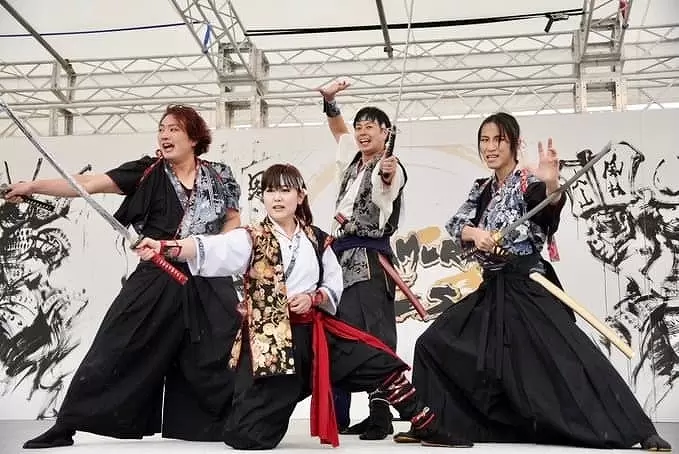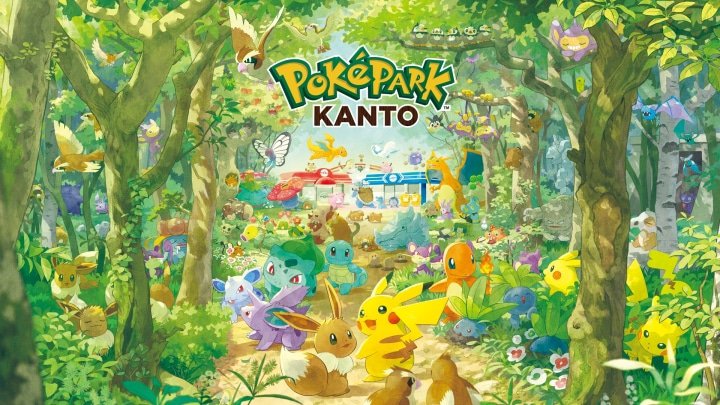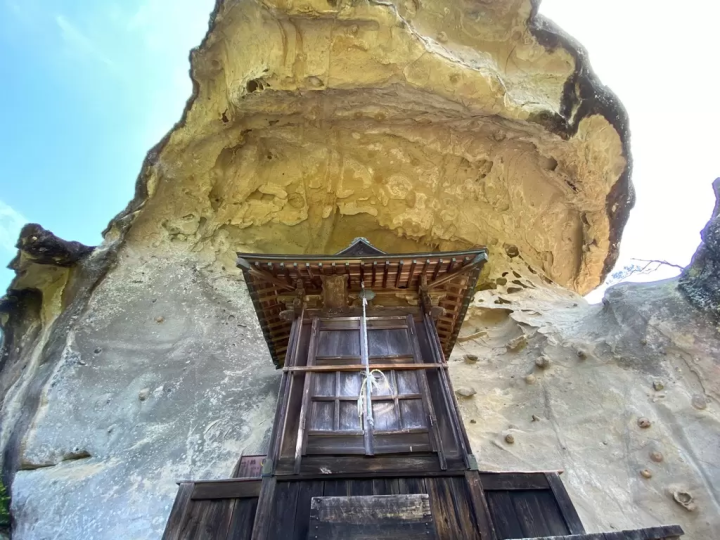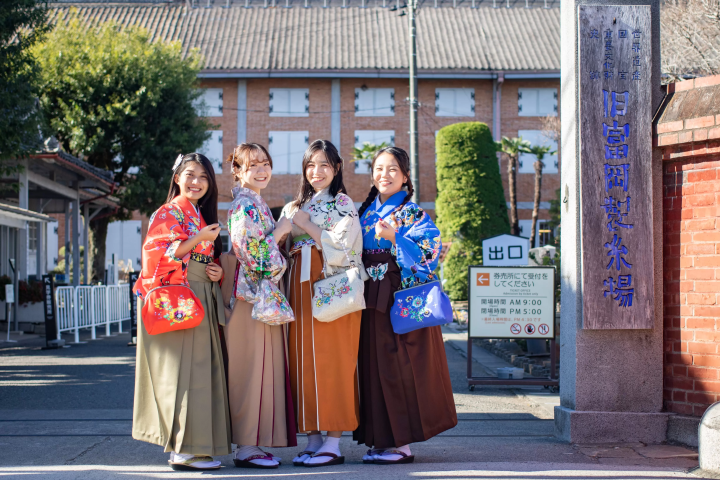So cute as the messengers of the deities! The foxes of Keihin Fushimi Inari Shrine where you can meet unique fox statues!

Keihin Fushimi Inari Shrine is located between Shin-Maruko in Kawasaki City and Musashi-Kosugi, between Tokyo and Yokohama. It has a quiet atmosphere in the middle of the city, and features a large red torii gate, a beautiful shrine building, and 108 stone statues of divine foxes. The cute fox statues are sure to be Instagrammable!
-
Table of Contents
- Overview of Keihin Fushimi Inari Shrine
- Divine fox
- Mount Fuji and Sengen Shrine on the grounds
- Information board
- access
Overview of Keihin Fushimi Inari Shrine
Inari Shrines have been rooted in Japanese culture since ancient times as gods who grant bountiful harvests and various wishes. Keihin Fushimi Inari Shrine was built in 1951 by dividing the spirit of the deity from Fushimi Inari Taisha, the head temple of Inari faith in Kyoto, in hopes of the region's recovery after World War II. Located between Shin-Maruko and Musashi-Kosugi in Kawasaki City, it is close to both Tokyo and Yokohama and can be explored on foot from the nearest station. Although the number of foreign tourists has been increasing recently, the shrine has a tranquil atmosphere that makes it hard to believe it is in a city full of skyscrapers.
As you stroll through the town, a large red torii gate suddenly appears and catches your eye. Within the grounds is a magnificent red shrine building, and 108 stone statues of divine foxes are enshrined within the grounds.
Divine fox
At Inari Shrine, foxes are enshrined as messengers of Inari deity. Foxes were called "messengers" and "attendants." Inari and the divine foxes have a very close relationship.

Torii
Torii gates stand at the entrance to shrines and are said to mark the boundary betwsen the world of the deities and the world of humans.
The large torii gate of Keihin Fushimi Inari Shrine was built in 1954 and is made entirely of iron, measuring a magnificent 14m in height and 16m in length.

Shrine

The main shrine is the central building of the shrine and is one of the largest nine-building Inari-style buildings in Japan.

Dedicated Torii Gate

If you go through the vermilion miniature Senbon Torii gates, modeled after those at Fushimi Inari Shrine in Kyoto, you will reach the lucky pond. There, you will find fox gods, and you may feel as if you are in a storybook.
Lucky Pond

Within the temple grounds, there are 108 divine foxes, one for each of the human earthly desires. Each has a unique pose and expression, and each has a deep meaning as they stand guard over the visitors.

The Benzaiten of Chikubu Island, which floats on Lake Biwa, is enshrined in the Shoufuku Pond.
Mount Fuji and Sengen Shrine on the grounds
It is made from lava brought from Mount Fuji and painted colorfully to resemble Mount Fuji, making it an eye-catching and unique statue of Mount Fuji.

Information board
The information board has information about the shrine's origins written in both Japanese and English.

access
Approximately 3 minutes from Shin-Maruko Station on the Tokyu Line, approximately 5 minutes from Musashi-Kosugi Station on the JR Lines

Hello! This is the Kawasaki City Tourism Association. We will introduce the charms of Kawasaki City, Kanagawa Prefecture, that will make you want to visit the city. ◆About Kawasaki City◆ Kawasaki City is a popular commuter town with 1.54 million people, located in Kanagawa Prefecture next to Tokyo, 15 minutes from Haneda Airport, a few minutes from Tokyo's major stations, and close to Yokohama, Kamakura, and Hakone. It is a big city close to Tokyo and Yokohama, but only known to those in the know, with shopping centers where Japan's main shops are gathered together and downtown areas where locals gather, allowing you to experience the real urban life of Japan. It is famous for its factory night view born from the industrial area that supported Japan's high economic growth, but it also flourished as one of the "Tokaido Fifty-three Stations", a post town on the "Tokaido", the main artery from Tokyo to Kyoto that was developed by the shogun who founded the Edo Shogunate, and is home to Kawasaki Daishi, which is visited by one of the largest worshippers in Japan on New Year's visits, and the Japanese Folk House Museum, which has 25 old houses designated as cultural properties. The museum of the popular anime "Doraemon" is also popular. Here are some popular tourist spots and events. ◇Kawasaki City Factory Night View This industrial area supported Japan's high economic growth period. At night, the factories that operate 24 hours a day turn on their work lights in the plants and transform into a fantastical world studded with jewels. You can experience this "factory night view" on a bus tour or a houseboat cruise tour. ◇Ikuta Green Space Although it is located in a city just a few minutes from Tokyo, it has a spectacular natural environment including rows of metasequoia trees. At the Japanese Folk House Garden, you can experience 25 old houses designated as cultural properties, and you can experience indigo dyeing, which has been traditionally practiced in this area, and there is also an art museum of Taro Okamoto, a popular avant-garde artist. You can also enjoy cherry blossoms in the spring. ◇Fujiko F. Fujio Museum, Kawasaki The museum displays original drawings by Fujiko F. Fujio, the manga artist who created Doraemon, a manga beloved around the world, especially in Asia, as well as the desk that Fujiko F. Fujio actually used. In addition, life-size items are installed, and you can actually eat the food that appears in the work, so you can enter the world of the work. ◇Kawasaki Sanno Festival The largest festival in the Kawasaki area, held every August at Inage Shrine, is a highlight of the festival, with a large portable shrine procession. ◇Kanamara Festival A festival at Kanayama Shrine held on the first Sunday of April. A portable shrine shaped like a penis is carried out, and it is famous for granting fertility and finding love, and many foreign tourists visit.
The contents on this page may partially contain automatic translation.



























![[Latest] Complete Guide to atmos Exclusive Sneakers and Special Edition Models | Apparel and Upcoming Releases](https://resources.matcha-jp.com/resize/720x2000/2026/01/16-255820.webp)


![[Okinawa] Winter Okinawa activities such as "whale watching" now on sale](https://resources.matcha-jp.com/resize/720x2000/2026/01/23-256495.webp)